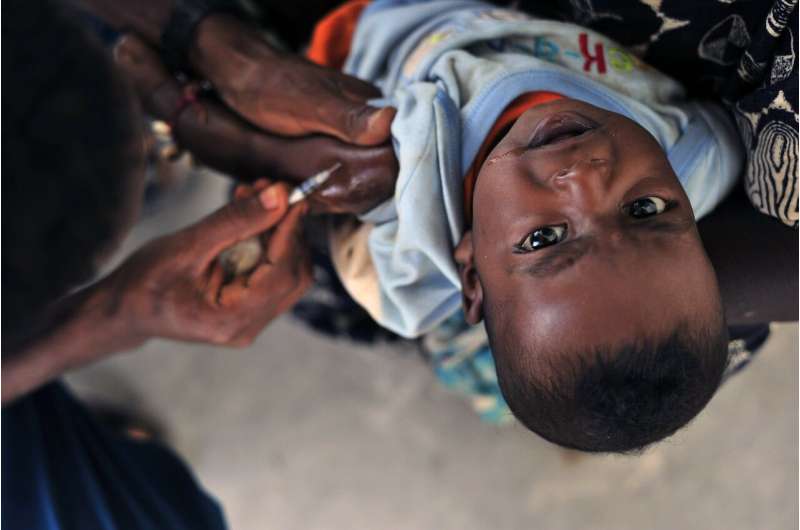This article has been reviewed according to Science X's editorial process and policies. Editors have highlighted the following attributes while ensuring the content's credibility:
fact-checked
trusted source
proofread
Study: Gut bacteria composition influences rotavirus vaccine efficacy

Certain types of gut bacteria can hinder the efficacy of the rotavirus vaccine, according to researchers in the Institute for Biomedical Sciences at Georgia State University.
The findings, led by Drs. Vu L. Ngo and Andrew T. Gewirtz, published in the journal Cellular and Molecular Gastroenterology and Hepatology, indicate that gut microbiota, particularly the trillions of bacteria that live in an individual's gut, can influence rotavirus vaccine responsiveness and sometimes result in children remaining prone to rotavirus infection and severe disease despite having been vaccinated.
Rotavirus is a virus that spreads easily among infants and young children, causing severe diarrhea, vomiting, fever and abdominal pain. Children who are infected with rotavirus disease can become dehydrated and may require hospitalization. Rotavirus vaccines have proven highly effective at protecting children in the United States and Europe but have relatively low efficacy in some low-income countries.
Rotavirus vaccines are orally administered, live, attenuated viruses that must infect their host's intestine to elicit protective immunity. The protection provided by rotavirus vaccines is highly dissimilar among individuals, leading the researchers to hypothesize that the composition of gut microbiota, amidst which the viral vaccine must infect, influences rotavirus vaccine efficacy.
In this study, the researchers investigated the influence of human microbiomes on rotavirus vaccination by administering microbial transplants to mice from children with robust or minimal rotavirus vaccine responsiveness. They found that mice receiving microbial transplants from individuals who were highly responsive to the rotavirus vaccine abundantly shed rotavirus antigens and robustly generated anti-rotavirus antibodies.
In contrast, mice receiving microbial transplants from children who had not responded to rotavirus vaccination exhibited only a modest increase in antibodies to rotavirus following vaccination and thus remained prone to rotavirus challenge.
Analysis of the microbiomes by DNA sequencing suggested involvement of Clostridium perfringens, which are bacteria known to occasionally cause overt illness, but which can also be present without causing disease in some humans and animals. Oral administration of cultured C. perfringens to mice partially mimicked the rotavirus vaccine non-responder traits. Re-analysis of published data found that the abundance of C. perfringens in children is modestly associated with failure of the rotavirus vaccine.
In conclusion, the researchers determined that microbiota composition influences rotavirus vaccine efficacy with C. perfringens being one—perhaps of many—examples of human microbiota capable of promoting rotavirus vaccine failure.
"Our findings reflect that C. perfringens may be one of a panel of microbes, including bacteria and viruses, that can impact infection of—and consequently, immune responses elicited by—rotavirus vaccine viruses," Gewirtz said.
Additional authors of the study include Yanling Wang, Yadong Wang and Jun Zou of the Institute for Biomedical Sciences at Georgia State; Zhenda Shi of the Institute for Biomedical Sciences at Georgia State, Cherokee Federal and the Centers for Disease Control and Prevention; Robert Britton and Sasirekha Ramani of the Baylor College of Medicine; and Baoming Jiang of the Centers for Disease Control and Prevention.
More information: Vu L. Ngo et al, Select gut microbiota impede rotavirus vaccine efficacy, Cellular and Molecular Gastroenterology and Hepatology (2024). DOI: 10.1016/j.jcmgh.2024.101393





















